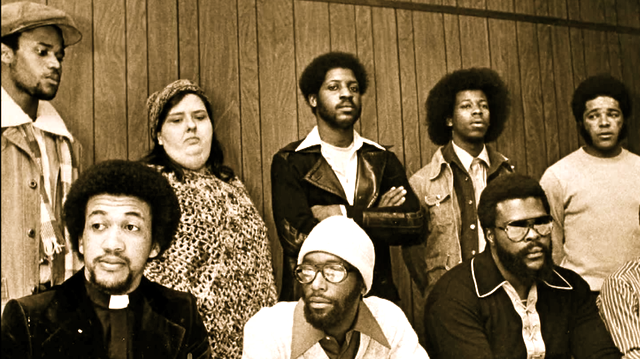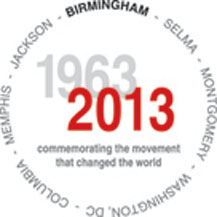The Movement that Changed the World

The Wilmington 10: North Carolina Urged to Pardon Civil Rights Activists Falsely Jailed 40 Years Ago. A DAILY INDEPENDENT GLOBAL NEWS HOUR with Amy Goodman & Juan González
 As the new year approaches, North Carolina Gov. Bev Perdue is being urged to pardon a group of civil rights activists who were falsely convicted and imprisoned 40 years ago for the firebombing of a white-owned grocery store. Their conviction was overturned in 1980, but the state has never pardoned them. We’re joined by one of the “Wilmington Ten,” longtime civil rights activist Benjamin Chavis, who served eight years behind bars before later becoming head of the NAACP. We also speak to James Ferguson, a lead defense attorney for the Wilmington Ten; and to Cash Michaels, coordinator for the Wilmington Ten Pardons of Innocence Project and a reporter for The Wilmington Journal, where he has been covering the activists’ case. [includes rush transcript]
As the new year approaches, North Carolina Gov. Bev Perdue is being urged to pardon a group of civil rights activists who were falsely convicted and imprisoned 40 years ago for the firebombing of a white-owned grocery store. Their conviction was overturned in 1980, but the state has never pardoned them. We’re joined by one of the “Wilmington Ten,” longtime civil rights activist Benjamin Chavis, who served eight years behind bars before later becoming head of the NAACP. We also speak to James Ferguson, a lead defense attorney for the Wilmington Ten; and to Cash Michaels, coordinator for the Wilmington Ten Pardons of Innocence Project and a reporter for The Wilmington Journal, where he has been covering the activists’ case. [includes rush transcript]
TRANSCRIPT
This is a rush transcript. Copy may not be in its final form.
JUAN GONZÁLEZ: We turn now to the case of the Wilmington Ten. As the new year approaches, civil rights activists are making a last-ditch push for North Carolina Governor Bev Perdue to pardon a group of civil rights activists who were falsely convicted and imprisoned in the city of Wilmington over 40 years ago. On Thursday, supporters delivered more than 130,000 petition signatures to the governor’s representative. At the press conference, state NAACP president, Reverend William Barber, said it’s not too late to right a wrong.
REV. WILLIAM BARBER: We come here, and right after Advent and Christmas and entering into the season of Epiphany, believing that North Carolina can turn this tragic history into a triumphant time of redemption and repentance.
AMY GOODMAN: The case of the Wilmington Ten goes back to 1971, when the city of Wilmington was in the midst of a civil rights struggle. After a white-owned grocery store in a black neighborhood was firebombed, police officers and firefighters arrived to extinguish the flames but came under gunfire. An African-American teen was killed by police that night, and a white man was shot and killed the next day. The National Guard moved in. Nine black men and one white woman were rounded up and hustled off to jail for their alleged involvement. The young defendants, the majority just high school age, were collectively sentenced to a total of more than 280 years in prison.
JUAN GONZÁLEZ: Then, in December 1980, the Federal 4th Circuit Court of Appeals ordered a new trial and overturned the original conviction. In an unequivocal ruling, the court found the prosecutor had reason to know his chief witness had repeatedly perjured himself on the stand. The court also found the prosecutor had obfuscated evidence and bribed witnesses. Amnesty International has called the Wilmington Ten “American political prisoners.”
The case of the Wilmington Ten recently regained public attention in light of newly discovered notes attributed to the prosecutor, Jay Stroud. The notes indicate Stroud used racial profiling and other unethical tactics to disqualify black jurors in favor of racist jurors who would almost certainly find the defendants guilty. For example, Stroud wrote next to the name of a prospective juror the words “KKK good,” and next to another juror “sensible; Uncle Tom type.”
AMY GOODMAN: Of the Wilmington Ten, four have already died. Others are battling illness. Their supporters are now asking Governor Perdue to once and for all clear their names and restore their dignity. SHOW FULL TRANSCRIPT.
http://www.democracynow.org/2012/12/28/the_wilmington_10_north_carolina_urged

